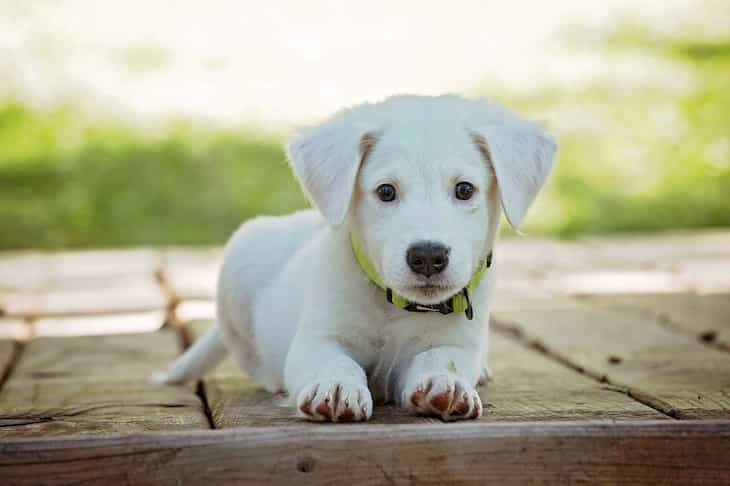Puppies need training, so they can learn some good habits and avoid the unpleasant ones.
For instance, if your puppy bites you (whether it's aggression or playfulness), then you have to stop it.
Here are a few things you can do to train it well.

Redirect their attention
When your puppy starts biting, gently redirect their attention to a suitable chew toy or bone.
Encourage them to bite and chew on the toy instead.
This helps them understand what is acceptable to chew on.
Use positive reinforcement
Whenever your puppy stops biting and starts chewing on the appropriate toy, praise and reward them with treats or gentle petting.
Positive reinforcement helps them associate good behavior with rewards.
Avoid rough play
Refrain from engaging in rough play with your puppy, as it can encourage biting behavior.
Instead, focus on gentle and interactive games that promote positive interaction without encouraging biting.
Socialize with other dogs
Allow your puppy to interact with well-behaved, vaccinated dogs.
Through socialization, they will learn acceptable levels of play biting and appropriate behavior from other dogs.
Teach bite inhibition
Puppies need to learn bite inhibition, which means controlling the force of their bites.
When your puppy bites too hard during play, make a high-pitched yelp to mimic the sound of a hurt littermate.
This signals to your puppy that biting too hard is not acceptable.
Use time-outs if necessary
If your puppy continues to bite despite redirection and other methods, you can use a time-out approach.
When they bite, calmly and gently remove yourself from their presence for a short period.
This teaches them that biting leads to a loss of attention and playtime.
Previously, we talked about octopuses.












